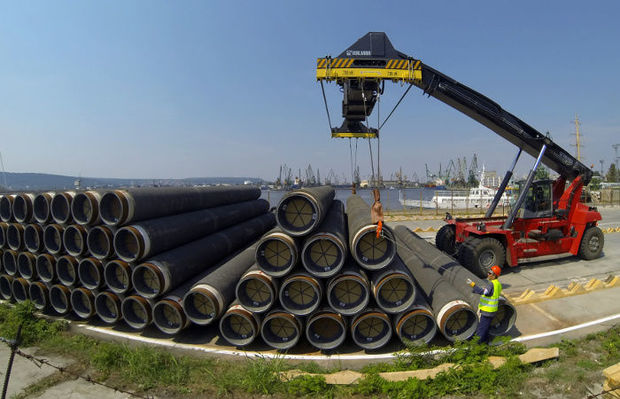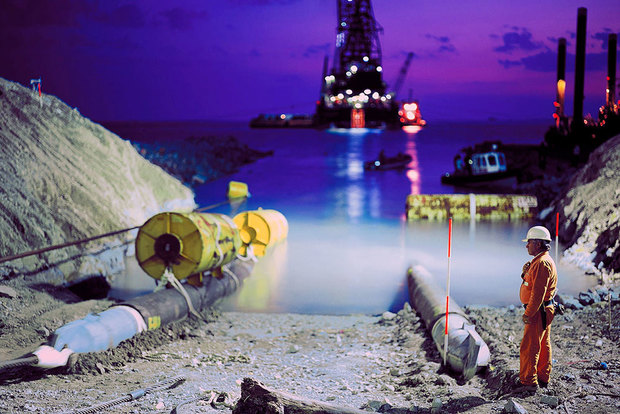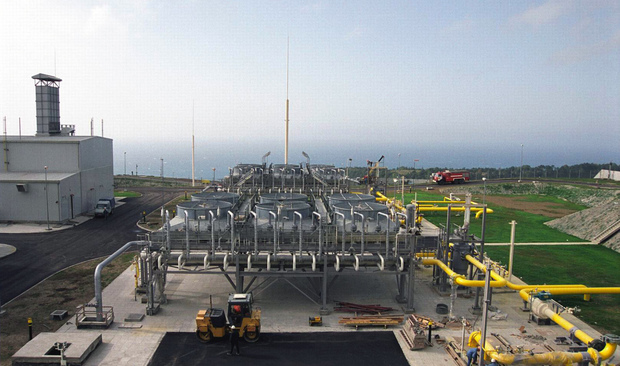Professor Erdal Tanas Karagöl: ‘Ukraine will be the country with the most damage’
A meeting of the presidents of Russia and Turkey is due to take place today in Saint Petersburg. A reincarnation of the frozen Turkish Stream project can become one of the topics for discussion at the meeting. Erdal Tanas Karagöl, who is a professor at Yıldırım Beyazıt University and the director of Economic Studies at the Foundation for Political, Economic and Social Research (SETA) gave an interview to Realnoe Vremya and highly estimated the prospects of the project that is necessary for both Russia and Turkey, in spite of the opposition of some other countries.
Mr Karagöl, Recep Tayyip Erdoğan is going to meet with Vladimir Putin today in Saint Petersburg. Do you expect any advances on the Turkish Stream as a result of these negotiations? Is it possible that the construction of the Turkish Stream will be renewed this year? What should be done for this purpose?
I believe that after the political tension both countries have been facing, this meeting will have positive effects on the relations and the Turkish Stream. Despite the adversity going on, not ending the project and just putting it aside actually indicates the importance of the project. Based on the fact that both countries have requested the construction of this project, I would like to emphasize that it could be started this year. The Turkish Stream project shows significant importance to Russia who wishes to transmit its natural gas to its biggest market buyers Turkey and Germany through different routes. With the gas prices decreasing Russia is going through a difficult process, therefore, I don't believe Russia is willing to take the risk of losing its market position.
Will this project be fulfilled?
I believe that the Turkish Stream project will be beneficial for Turkey and Russia. The Turkish Stream project carries great importance to Russia because it generates a new route in exporting a significant amount of natural gas to both Europe and Turkey. Also the Turkish Stream contains great importance to Turkey that is progressing in confident footsteps. Plus, due to Russia's conflict with Ukraine, a new path will open to export Russia's natural gas to Europe. Turkey sustaining energy supply security is content among European countries that meet a significant amount of their natural gas needs.

'The Turkish Stream project carries great importance to Russia because it generates a new route in exporting a significant amount of natural gas to both Europe and Turkey. Also the Turkish Stream contains great importance to Turkey that is progressing in confident footsteps.' Photo: globallookpress.com
Is it a necessary project?
I see the Turkish Stream project as necessary. In spite of the criticism that this project has the same function as the Nord Stream, it seems inevitable that Russia will transport natural gas to Europe using this route because of the conflicts with Ukraine. For Russia to ensure the security of the energy supply in Turkey and Europe the Turkish Stream is required.
Who is against this deal?
Ukraine is prominently against the Turkish Stream project. The reason Ukraine is against this project is based on the fact that it provides natural gas transportation from Russia to Europe and with the conflicts that it's facing it will lose its position. In addition, some EU countries are against this project because they do not want to be any more dependent on Russia.
Generally speaking, can the recent events in Turkey strengthen the ties between our countries? Reuters wrote that EU is afraid of friendship of Turkey and Russia.
After the coup attempt both politically and financially Turkey went through a rapid recovery its current projects will continue at the same pace. In addition, after developing relations with Russia, and Russia's explanation that it will not try to be an alternative to the EU clearly indicates that there is no need to be anxious .
Can EU influence the fulfilment of the Turkish Stream?
Generally the EU countries expressed their opinion to decrease their dependence on gas with Russia. These countries are aware that in order to meet the increasing needs in the short and middle term they need to sustain their relation with Russia which is an important country transmitting gas. In this context, I believe that they are not against the alternative Turkish Stream project because they think that the conflicts between Russia and Ukraine will affect their natural gas importation.

'Even the difficult period starting with Turkey shooting down Russia's warplane didn't prevent this project from ending. In this context, it's obvious that both sides embraced the Turkish Stream.' Photo: gazprom.ru
Simone Tagliapietra, who is Senior Fellow at Bruegel, thinks the project is rather 'rhetorical' than real. What do you think about it?
I don't consider it to be that way. Even the difficult period starting with Turkey shooting down Russia's warplane didn't prevent this project from ending. In this context, it's obvious that both sides embraced the Turkish Stream.
What other countries except Russia are interested in the energy complex of Turkey?
As it is known TANAP will transport Azerbaijan's natural gas to Europe and in the years ahead it is expecting Turkmenistan, Northern Iraq and Iran to affiliate. In this case, it shows the importance of Turkey's geographical position. In the following years, many countries with energy resources would like to transport natural gas with new pipelines and transmit LNG resources with new terminals to Turkey and to Europe from there.
What countries will benefit from the Turkish Stream? What countries will be hurt?
First of all, we can think that the EU countries will benefit from the Turkish Stream. As I said before Turkish Stream will be an alternative route on behalf of the EU countries since natural gas won't be transmitted from Ukraine. Also, the Turkish Stream project will pass through Turkey and this will be an important step in becoming an energy-centered country. Turkey will ensure the energy supply security noting that new energy projects will be possible. With the Turkish Stream project Ukraine will be the country with the most damage.
Is there any concern that Russia won't accept the fulfilment of the Turkish Stream project according to the formula 'one line is for Turkey only'?
Turkish Stream's first stage will provide a route for supplying gas to western Turkey bypassing Ukraine. In the second phase, planned gas hub near the Turkey-Greece border to transport Russian gas to Europe. The three subsequent stages will supply gas to countries in central and Southern Europe also bypassing Ukraine. In my opinion, neither Russia nor Turkey is an EU member, and so neither are bound by the Third Energy Package (TEP), which makes the construction of Turkish Stream much easier.

'When considering Russia not giving a rough time in gas transmission despite the political tension, it would be more efficient to link the 24% gas transmission reduction to technical difficulties or to the decline in demands.' Photo: gazprom.ru
Will the European Commission grant a sales guarantee that Russia requires (for Austria, Hungary, Italy)? Because the relations between EU and Russia are quite complicated as well as the relations of EU and Turkey.
Although it is known that some countries, a part of the EU are against this project in general the EU wishes to put the Turkish Stream project in action. In this context, I believe that the European Council will provide a sales guarantee for natural gas. I am sure that the tension between the EU and Russia will not reflect on the relations between Turkey and the EU.
Last year a record volume of 15,4bn cubic metres was delivered through the Blue Stream. In January-May 2016, the volume of supply reduced by 24%. Does it mean a substitution of Gazprom's gas supply with Iranian gas? Is there any sense in building another Turkish Stream to sell the product to Turkey even if the current Blue Stream's volumes are reducing, and there is a threat to be driven out by Iran?
Turkey in its current state is exporting natural gas from Russia, Iran and Azerbaijan. Taking Iran being one of the most expensive importers in consideration, it's clear to see that it's not possible for Iran's natural gas to be an alternative to Russia. When considering Russia not giving a rough time in gas transmission despite the political tension, it would be more efficient to link the 24% gas transmission reduction to technical difficulties or to the decline in demands. I do not believe that the energy trade continuing between Turkey and Russia will affect Iran's argument in a negative way.
Reference
Erdal Tanas Karagöl is the director of Economic Studies in the Foundation for Political, Economic and Social Research (SETA) in Ankara.
Erdal Tanas Karagöl graduated from the Economic Faculty of the University of Istanbul in 1992. Then he studied at the Connecticut University, where he received his M.A degree. In 2002, he got his his PhD. on foreign debt and economic growth relation and the risk of postponing foreign debts from York University.
Nowadays apart from his work at SETA, Erdal Tanas Karagöl is a professor at Yıldırım Beyazıt University, writes articles and analyses.